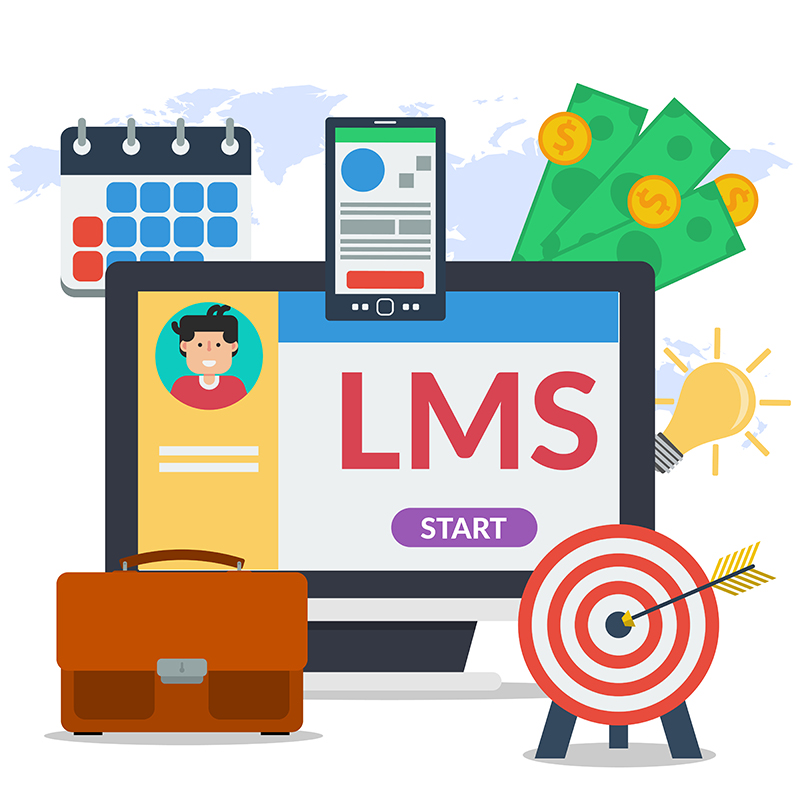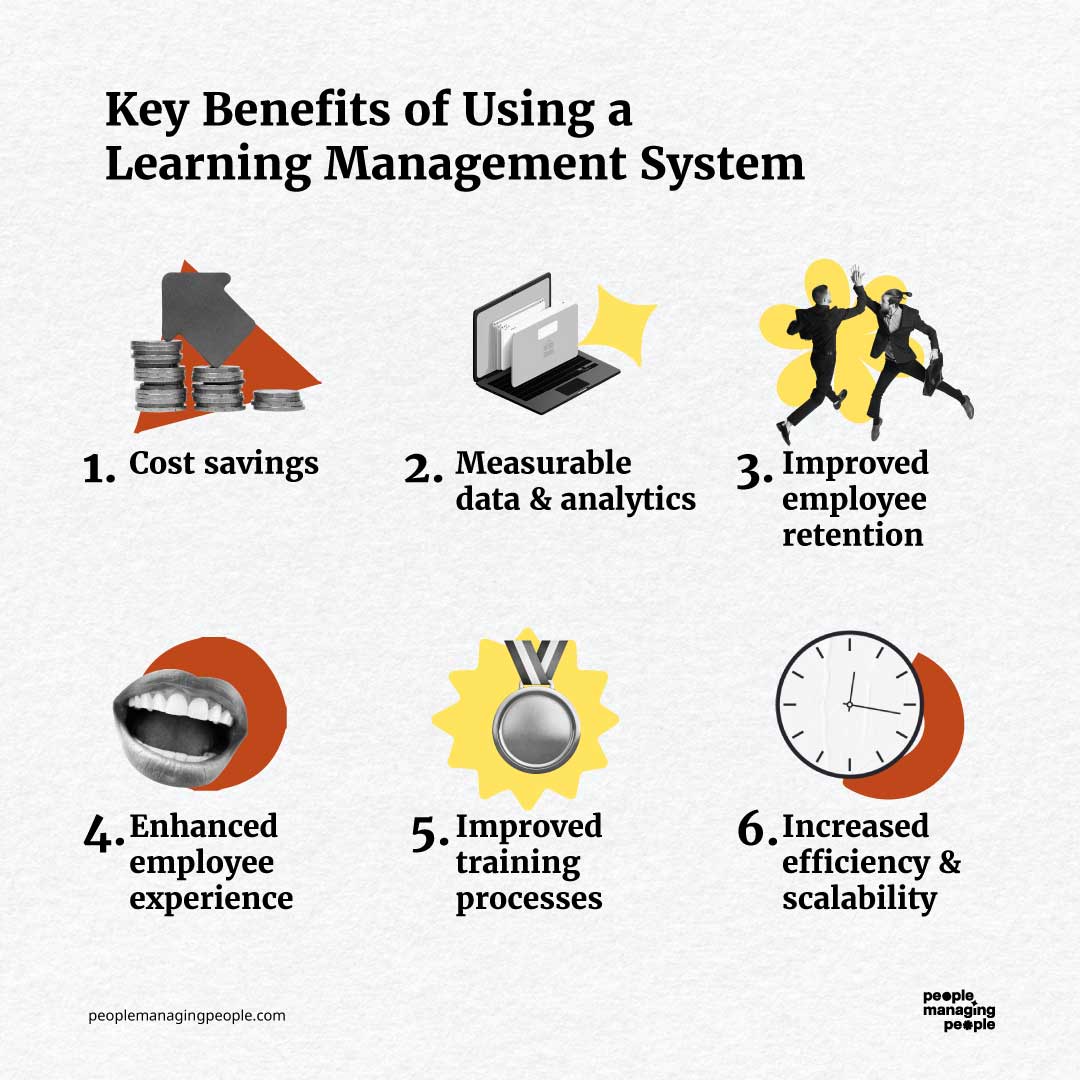Picking the most effective Learning Management System for Your Organization
Selecting the optimum Understanding Administration System (LMS) for your company is a complex choice that calls for mindful consideration of numerous aspects. From defining accurate understanding goals that reverberate with your tactical vision to examining user experience, each variable plays a crucial duty in the general effectiveness of the system. Furthermore, recognizing integration capacities and guaranteeing scalability for future requirements can not be overlooked. As companies make every effort for performance and development, the selection of an LMS becomes increasingly significant. What are the essential considerations that can affect your decision-making process?
Specify Your Knowing Objectives
Defining clear learning objectives is crucial for the effective implementation of an Understanding Management System (LMS) These purposes offer as a roadmap, guiding the growth of material, assessments, and overall training techniques within the LMS. By developing certain, measurable, achievable, pertinent, and time-bound (CLEVER) objectives, organizations can make sure that the understanding experiences are straightened with their calculated goals and student requirements.
Reliable learning objectives need to encapsulate what students are anticipated to understand or be able to do upon completion of a training course or training program. This quality not just aids in content production yet additionally assists in the analysis of learner progression and the overall efficiency of the LMS. Singapore LMS. Distinct goals enable stakeholders to examine whether the chosen LMS performances and features line up with their academic goals.
Assess Customer Experience
Once discovering objectives have actually been developed, examining customer experience ends up being an essential next step in picking a proper Understanding Monitoring System (LMS) User experience includes the general complete satisfaction and simplicity with which learners communicate with the system. A well-designed LMS must help with user-friendly navigating, guaranteeing that customers can find courses, products, and support easily.
To evaluate user experience, consider conducting use testing with a representative example of end-users. Key variables to evaluate include the LMS's interface design, access attributes, mobile compatibility, and the clarity of directions offered.
In addition, evaluate the schedule of assistance resources, such as tutorials and assistance centers, which can enhance the individual experience. The responsiveness of consumer support is additionally important; timely support can dramatically reduce disappointments that users might encounter. Eventually, choosing an LMS that prioritizes user experience not only enhances the learning procedure yet also fosters greater involvement and contentment amongst students.

Evaluate Integration Capabilities
Identifying the relevance of seamless capability, reviewing integration capabilities is vital when picking a Knowing Management System (LMS) A reliable LMS should help with interoperability with existing systems, such as Human Resource Monitoring Solution (HRMS), Customer Relationship Administration (CRM) systems, and other instructional devices. This integration browse around this web-site improves information flow, reduces management burdens, and guarantees a cohesive knowing atmosphere.
When examining an LMS, consider the kinds of integrations offered. Search For Application Shows User Interfaces (APIs), Solitary Sign-On (SSO) abilities, and pre-built connectors that streamline integration processes. In addition, validate the LMS's capability to incorporate with third-party devices, such as content libraries or analysis systems, which can substantially enhance the discovering experience.

Take Into Consideration Scalability and Adaptability
As companies evolve, the capacity of a Discovering Management System (LMS) to range and adjust ends up being significantly vital. A scalable LMS can accommodate development in individual numbers, program offerings, and Discover More Here content without compromising performance or customer experience. As businesses expand, whether via enhanced employees, brand-new locations, or varied training demands, the LMS must flawlessly grow along with these adjustments.
Flexibility is just as necessary; a reliable LMS should support numerous finding out modalities, such as online, mixed, and mobile understanding. This versatility enables companies to respond rapidly to arising trends in training and advancement, ensuring that they can provide relevant and appealing discovering experiences - Learning Management System Singapore. Furthermore, the system must offer adjustable functions, enabling organizations to customize the Home Page LMS to their particular demands and branding
In addition, a flexible LMS ought to integrate easily with existing tools and systems, helping with a natural discovering environment. Therefore, when choosing an LMS, it is essential to evaluate not just its existing capabilities however additionally its prospective to grow and adjust in placement with the company's critical goals and developing discovering requirements. This foresight can substantially improve the long-term stability of the chosen LMS.
Review Prices and Budgeting
When assessing a Knowing Administration System (LMS), reviewing expenses and budgeting is necessary to guarantee that the investment straightens with the company's financial capabilities and strategic goals. Organizations ought to start by recognizing the total expense of ownership, which consists of licensing charges, application expenses, upkeep, and any type of additional expenditures such as training and technical assistance.
It is vital to contrast various LMS options, as rates designs can differ significantly among suppliers. Some systems may offer a subscription-based model, while others may bill an one-time cost. Organizations must also consider the scalability of the LMS; as they grow, the expense framework might alter, affecting long-term budgeting.

Verdict
Selecting a proper Knowing Administration System (LMS) is important for attaining business discovering purposes. Ultimately, the best LMS serves as a critical device in fostering an efficient learning setting and driving organizational success (Canvas Singapore).
Picking the optimum Discovering Administration System (LMS) for your organization is a multifaceted decision that calls for cautious consideration of various components.Defining clear discovering objectives is essential for the effective implementation of a Learning Management System (LMS)Once learning objectives have actually been established, reviewing customer experience ends up being a vital following action in picking an ideal Discovering Monitoring System (LMS)As companies develop, the ability of a Knowing Management System (LMS) to range and adapt becomes progressively vital.Selecting a proper Knowing Administration System (LMS) is vital for achieving business knowing purposes.